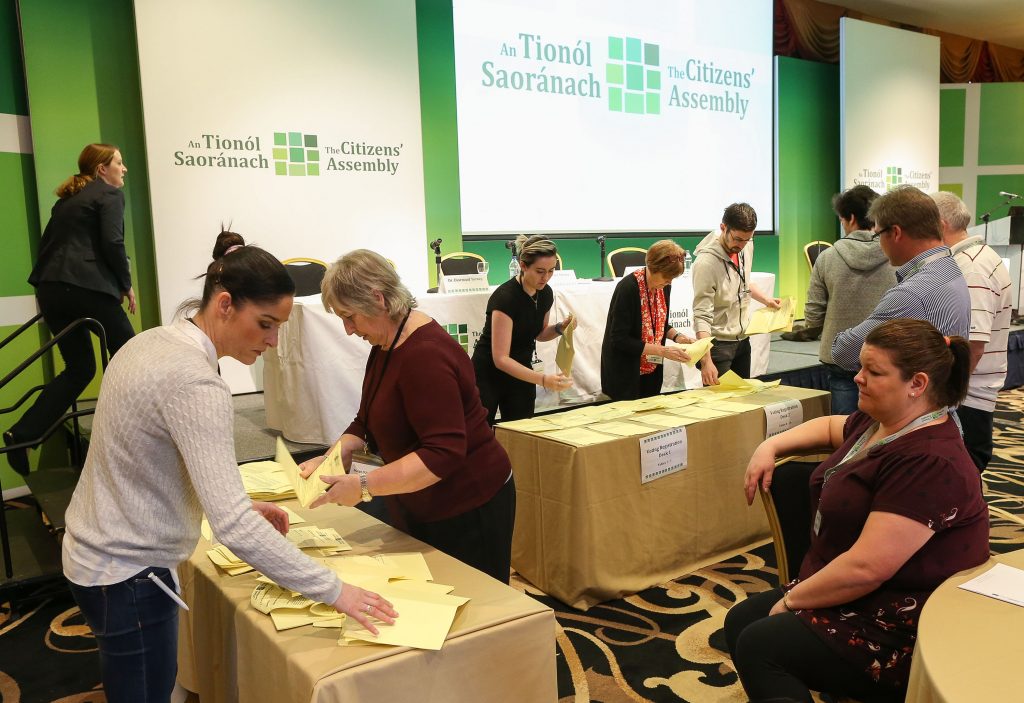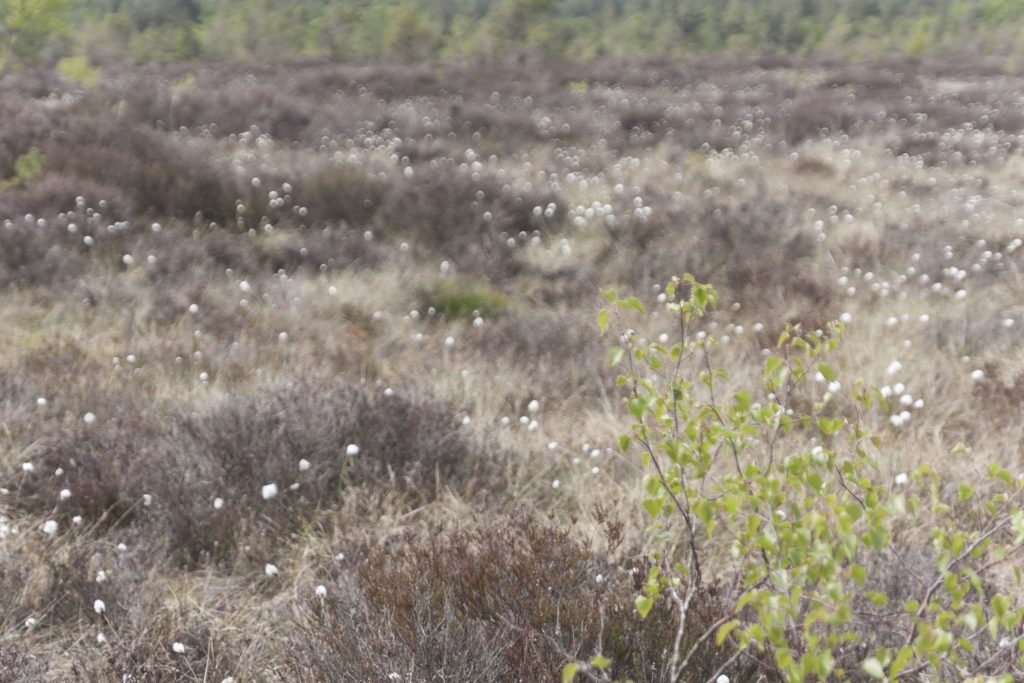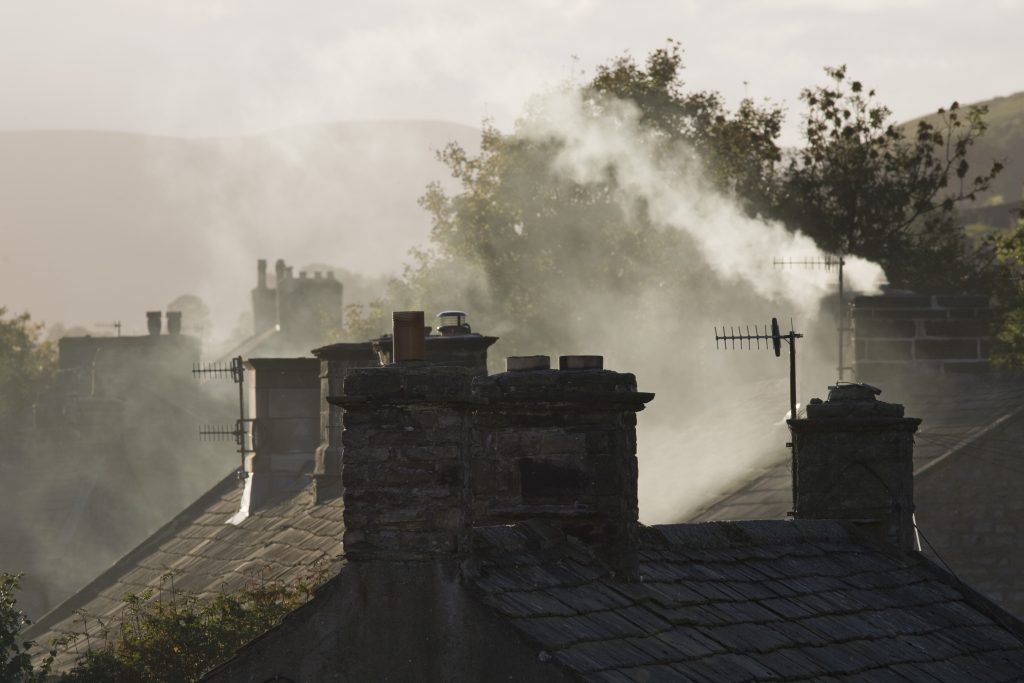Climate Committee report close as key recommendations agreed

March 27th, 2019
Members of the special Climate Action Committee voted this evening to accept almost 40 key policy recommendations to be included in its impending report.
The Committee met this evening in public session to air out any kinks remaining in its widely ambitious recommendations that will form the bedrock of its report due for release tomorrow.
The report follows six months of scrutiny by Committee members and builds on a wish list outlined by the Citizens’ Assembly on how the State can lead on climate action.
The Government has said that it will feed the recommendations into its upcoming All-of-Government climate plan and the National Energy and Climate Plan that will be sent to the European Commission later this year.
Overall, the report is widely ambitious as the Committee recognises that the window of opportunity to reduce emissions and avoid severe climate impacts is rapidly closing.
The Committee voted to accept recommendations to ramp up renewables and home retrofitting, to bring down agricultural emissions while supporting on-farm biodiversity, and to facilitate greater community involvement in the low carbon transition.
Other recommendations accepted by the Committee include calls for the Government to establish a just transition taskforce focused on workers in the Midlands and a new legal framework for tackling climate change.
Recommendations to embed climate into the educational curriculum and for new broadcast media guidelines for climate coverage were also accepted.
Amendments on the body of the text will be discussed by the Committee in public session tomorrow, with the report also expected to be launched tomorrow barring any major disagreements on the text.

Greater accountability
The Committee agreed to call for new climate legislation that would set a net zero emissions target for 2050 and a 70 per cent target for renewables on the electricity grid by 2030, as well as mandating five-year departmental carbon budgets from 2020 onwards.
The budgets would be determined by a new Climate Action Council (CAC) also recommended by the Committee that would
The CAC would report to a new standing Joint Oireachtas Committee on Climate Action that would have similar powers to the Committee of Public Accounts to hold public bodies to account on climate action.

Just Transition
The Committee members also agreed to recommend the establishment of a Just Transition Task Force to address the needs of regions and sectors most likely to be impacted by climate action.
The Task Force would be responsible for commissioning research to examine the regions and sectors of the economy most likely to experience serious disruption.
The Committee members recognised that specific measures will be required for the Midlands region due to its dependence on peat extraction that will be phased out for electricity generation by 2030.
In this light, the Committee agreed to recommend that the Government direct the Regional Enterprise Plan (REP) Committee in the region to devise a just transition strategy to “sustain the economic and social fabric of the region in a post peat extraction era”.
The strategy would examine ways to fund a major project to rewet bogs and how best to deliver a major house retrofitting programme in the region.

Biodiversity and agriculture
Committee members also agreed that there is a need for a more diversified, resilient, and sustainable agricultural model that is more in tune with nature.
Irish agriculture has become increasingly specialised in beef and dairy over the last 50 years, with horticultural production declining to less than one per cent of agricultural land.
Recognising this, Committee members agreed to call for the setting up of a multi-stakeholder forum to support industry diversification, including growing vegetables and alternative crops such as willow and hemp.
The Committee also agreed to recommendations calling on the state to promote the carbon sequestration potential of land through native broadleaf woodlands, maintaining hedgerows and rewetting bogs.

Transport
Among key transport recommendations supported by the Committee are greater prioritisation of public transport under Project Ireland 2040 and greater rural public transport networks.
There were almost 2.7 million vehicles registered in Ireland in 2017, with over half of all transport emissions coming from private car journeys.
Project Ireland 2040 includes a significant programme of investment in our public transport infrastructure including the Metrolink and Dart Expansion in Co Dublin and Bus Connects in counties Dublin, Cork, Galway and Limerick.
The Committee, however, agreed to recommend that further public transport projects should also be re-evaluated with a view to their inclusion after Project Ireland 2040’s mid-term review.
The Committee is also set to call on the Government to facilitate active transport, namely cycling and walking, as the first priority for emissions mitigation in the sector.
The Green Party proposed an additional recommendation for 2-to-1 spending on public transport over road infrastructure. The amendment was defeated over fears of the impact on funding for rural road infrastructure.
A second Green Party recommendation for a minimum of 10 per cent expenditure on cycling infrastructure in transport programmes was accepted by a majority of Committee members.

Carbon tax hang-up
Last minute wrangling over the wording of a recommendation on carbon tax was the only major sore spot during the Committee’s session.
At present, the tax set at €20 per tonne of carbon brings in €440 million per year that goes directly to the Government’s main treasury account.
The Committee is in general agreement that any increase in carbon tax should be subject to hypothecation – ring-fenced for a specific purpose – where funds are used to aid the transition to a low carbon economy.
The two options directly outlined in the committee’s draft report call for any revenue raised to be used to directly assist those living in fuel poverty or returned to all households by way of a cheque in the post.
An issue arose this evening over the current wording in the Committee’s report in relation to proposals to raise the tax to €80 per tonne by 2030.
At present, the report states that the Committee agrees with the advice from the Climate Change Advisory Council (CCAC) that the price of carbon should increase to at least €80 per tonne by 2030.
An amendment from Fianna Fail’s Timmy Dooley sought to change the wording to indicate that the Committee “acknowledges” the CCAC’s advice and to then engage in wide consultation with the public.
Mr Dooley said that the capacity to assist the likes of people in fuel poverty or those struggling to pay their mortgage needs to be fleshed out before any binding increase in the carbon tax is laid out.
Sinn Fein’s Brian Stanley agreed that a concrete support system for low and middle-income households needs to be in place prior to a tax rise.
In turn, Fine Gael’s Marcella Corcoran Kennedy issued a counter-amendment that would see the Committee “accept” the CCAC’s advice and include the 2030 target in new climate legislation. Both amendments were defeated.
Fine Gael’s Pat Deering and Tim Lombard spoke in favour of Ms Corcoran Kennedy’s proposal as
Deputy Martin Heydon backed his party colleagues, adding that it would be “an absolute fudge” not to set out a carbon tax trajectory to 2030 as certainty is required to encourage behavioural change. The Greens and Labour also supported Ms Corcoran Kennedy’s proposal.
Mr Dooley questioned Fine Gael’s “new found interest” in carbon taxes after it failed to increase the tax over the last eight budgets, including Budget 2019 where the Government rowed back on proposed increases at the last minute.
Committee members agreed to push back a decision on the chapter containing the recommendation on carbon tax until the Committee’s session tomorrow afternoon.
The chair Hildegarde Naughton said that the carbon tax “stumbling block” should not overshadow the “excellent work” of the committee and the ambitious climate template that it will put to the Government.
[x_author title=”About the Author”]







